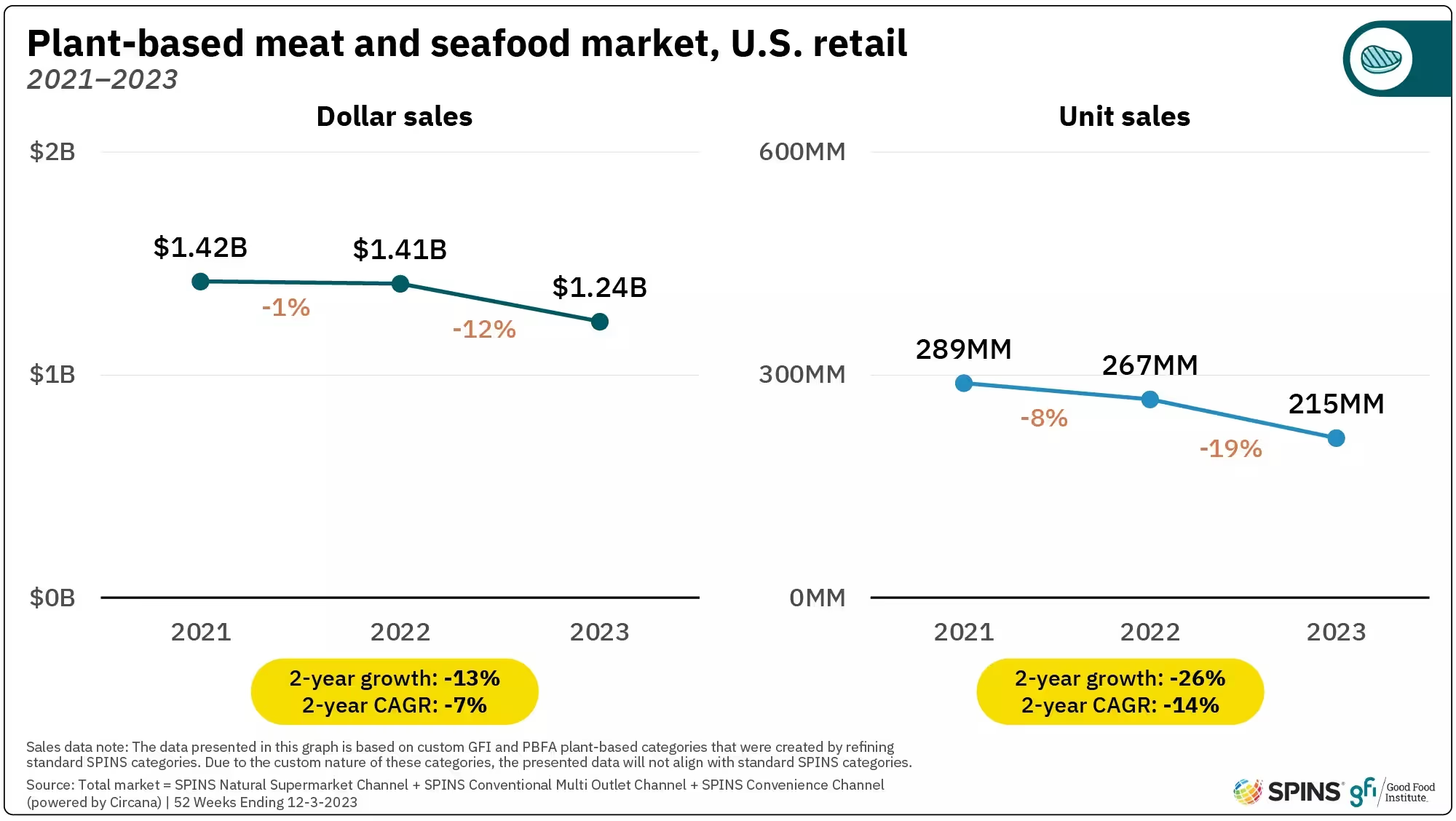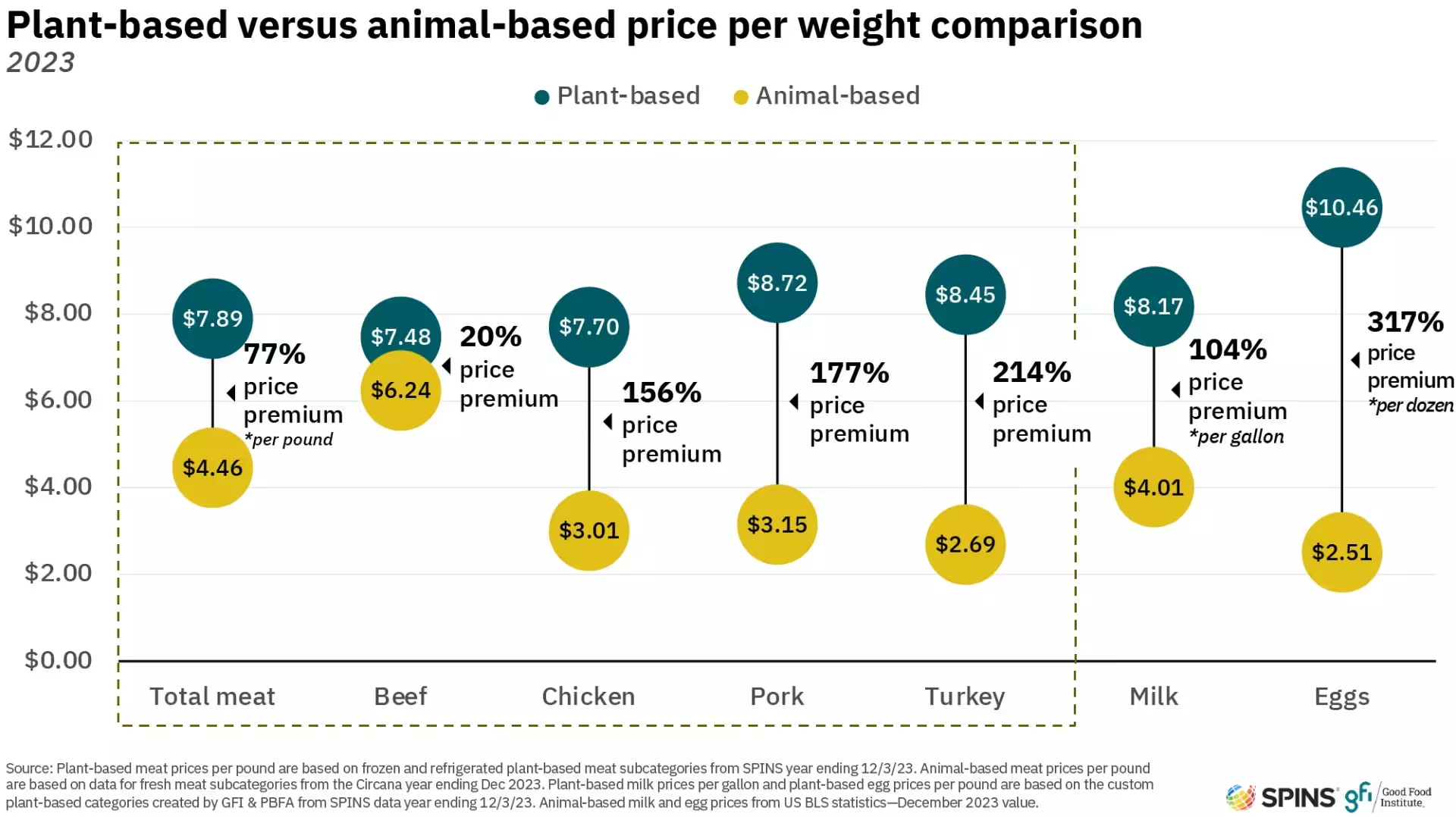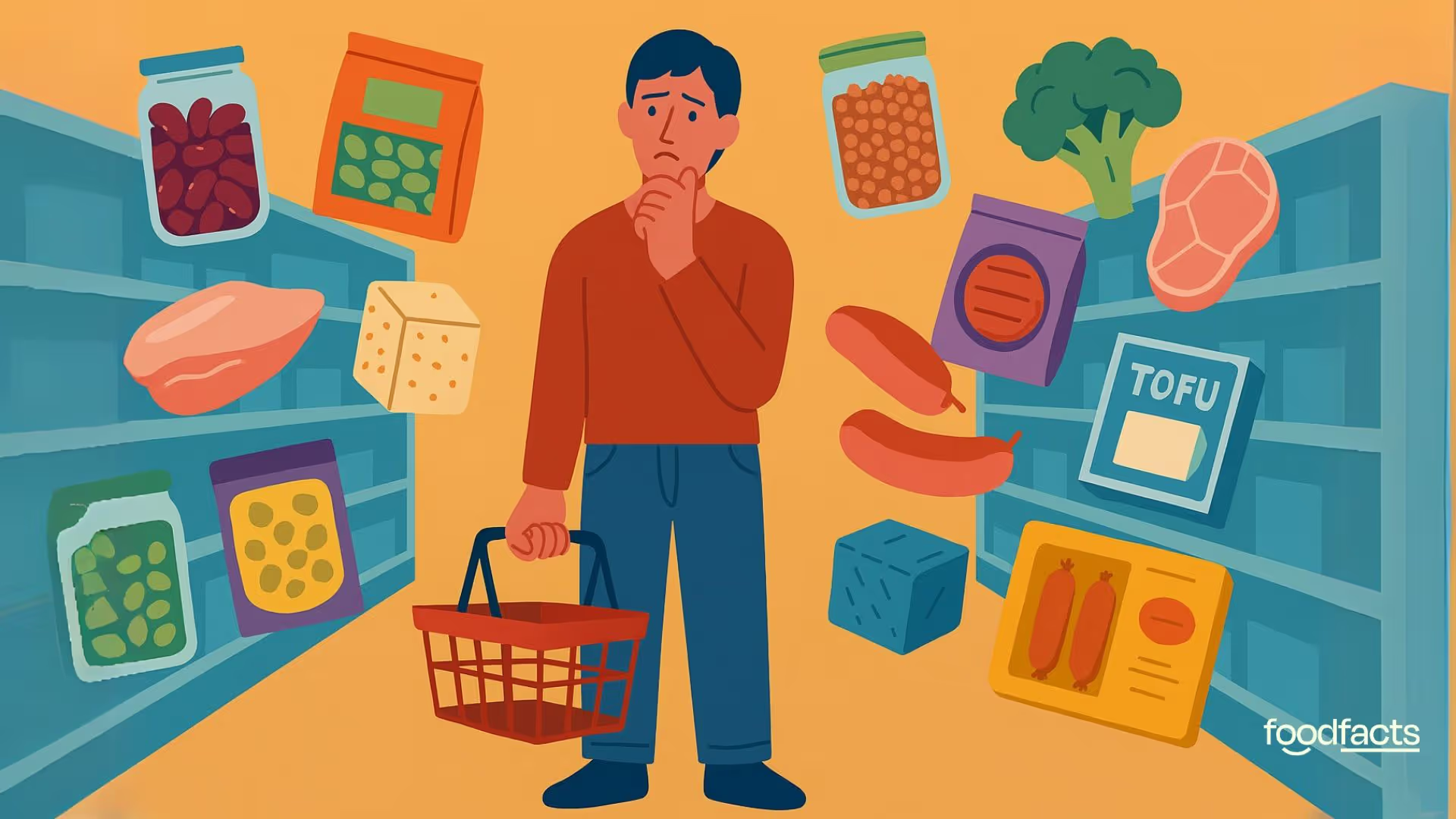
Unpacking the shift: why consumers are moving away from plant-based meat





Coral Red: Mostly False
Orange: Misleading
Yellow: Mostly True
Green: True
Learn more about our fact-checking policies
There’s been a lot of talk lately about the decline in plant-based meat sales, with some suggesting that it signals reduced interest in plant-based eating altogether. But is this really the case? A closer look at the data and consumer trends suggests a more nuanced reality—one that speaks more to market shifts than a wholesale rejection of plant-based foods.
The Bigger Picture
It’s true that U.S. retail sales of plant-based meat products fell by 12% in 2023, and in the UK, sales dropped by 13.6%. Some media outlets have taken this as proof that the broader plant-based movement is fading. However, focusing solely on these numbers ignores the fact that consumer preferences are shifting, rather than disappearing.

While some plant-based meat alternatives have struggled, the demand for alternative proteins remains. Other sectors, such as plant-based dairy and whole-food plant proteins, continue to grow. For example, the global tofu market was valued at $2.8 billion in 2023 and is projected to reach $4.3 billion by 2032. This suggests that consumers are still open to plant-based options but are becoming more selective about what they buy.
Why Are Sales Declining?
One reason for the dip in plant-based meat sales is that many products have not met consumer expectations. We've all tried a plant-based product that has disappointed with taste and texture, while other alternatives are priced higher than their conventional counterparts. In a time of economic uncertainty, cost is a major factor in purchasing decisions, and many consumers are opting for more affordable protein sources—whether that means traditional meat, whole plant foods, or other alternatives, such as tempeh.
Another key factor is health perception. Some consumers who initially embraced plant-based meats are now scrutinizing ingredient lists, wary of ultra-processed products. This has led to a growing preference for less processed plant-based options like beans, lentils, and vegetables, which remain affordable and widely available.
Moreover, there are an increasing number of social media influencers that are breaking down the barriers to cooking with less processed forms of plant-based protein, either by creating accessible recipes or simply normalising the concept of eating beans with every meal, such as members of the leguminati.

Is This Just a Trend?
It’s easy to assume that plant-based eating was simply a passing trend fuelled by social media, but the reality is more complex. The rise of alternative proteins has been driven by multiple factors, including environmental concerns, health considerations, and ethical debates. While social media helped popularize these products, consumer interest in sustainable food choices predates the recent boom in plant-based meat alternatives.
"What we’ve really come to understand is just how important capability is when it comes to reaching the mass market. There’s a clear appetite—many people genuinely want to cut down on meat—but a big barrier is they simply don’t know how to start. For whatever reason, the products we have on shelves right now aren’t quite connecting. And that’s surprising, because plant-based meats are actually super easy to cook—much easier than animal proteins, which need careful handling and have a shorter shelf life. The good news? There’s huge potential here. Once we crack that awareness gap, the category has real room to grow." - Indy Kaur, Founder - Plant Futures
Trends should also be studied over a long time, rather than across a couple of years. It would be normal to expect fluctuations in any industry's growth, particularly in a time of such geopolitical instability. Basing bold claims about the decline of an industry after just two years of market shift seems disingenuous.
What’s Next for Alternative Proteins?
Rather than signalling the end of plant-based eating, this shift in sales reflects an industry in transition. Companies that adapt by improving taste, affordability, and nutritional transparency will likely find continued success. Meanwhile, consumer demand for diverse protein sources—including traditional meat, plant-based options, and emerging alternatives like cultivated meat—is shaping a more dynamic food landscape.
For policymakers, businesses, and consumers, the key takeaway isn’t that plant-based eating is disappearing, but that it is evolving. As the market matures, the focus is moving away from novelty and toward quality, affordability, and choice. Whether people choose plant-based foods for health, environmental, or ethical reasons—or prefer traditional protein sources—the future of food is likely to be more inclusive and diverse than ever before.

Sources
- The Telegraph (10 February 2025). "The anti-vegan backlash that made Britain fall back in love with meat."
- Just Food. (2023). "US plant-based food retail sales declined in 2023, GFI says."
- Grocery Gazette. (2023). "Demand for vegan food plummets as meat sales soar".
- Research and Markets. (2023). "Tofu Market Size, Share & Trends Analysis Report."
- Good Food Institute. (2023). "Plant-based meat and seafood sales analysis."
- The Guardian (22 November 2024). "‘It’s like a secret’: why do the leguminati want to change the way we eat?"



Foodfacts.org is an independent non-profit fact-checking platform dedicated to exposing misinformation in the food industry. We provide transparent, science-based insights on nutrition, health, and environmental impacts, empowering consumers to make informed choices for a healthier society and planet.
🛡️ Stand Against Nutrition Misinformation
Misinformation is a growing threat to our health and planet. At FoodFacts.org, we're dedicated to exposing the truth behind misleading food narratives. But we can't do it without your support.
Your monthly donation can:
✅ Combat viral diet myths and corporate spin
✅ Support our team of dedicated fact-checkers and educators
✅ Keep our myth-busting platforms running

Was this article helpful?















.svg)
